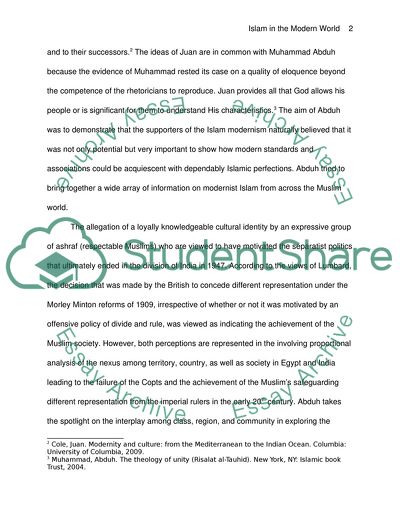Cite this document
(Modern Islam - Revivalism, Modernism, and Fundamentalism Literature review Example | Topics and Well Written Essays - 1250 words, n.d.)
Modern Islam - Revivalism, Modernism, and Fundamentalism Literature review Example | Topics and Well Written Essays - 1250 words. https://studentshare.org/religion-and-theology/1769582-islam-in-the-modern-world
Modern Islam - Revivalism, Modernism, and Fundamentalism Literature review Example | Topics and Well Written Essays - 1250 words. https://studentshare.org/religion-and-theology/1769582-islam-in-the-modern-world
(Modern Islam - Revivalism, Modernism, and Fundamentalism Literature Review Example | Topics and Well Written Essays - 1250 Words)
Modern Islam - Revivalism, Modernism, and Fundamentalism Literature Review Example | Topics and Well Written Essays - 1250 Words. https://studentshare.org/religion-and-theology/1769582-islam-in-the-modern-world.
Modern Islam - Revivalism, Modernism, and Fundamentalism Literature Review Example | Topics and Well Written Essays - 1250 Words. https://studentshare.org/religion-and-theology/1769582-islam-in-the-modern-world.
“Modern Islam - Revivalism, Modernism, and Fundamentalism Literature Review Example | Topics and Well Written Essays - 1250 Words”. https://studentshare.org/religion-and-theology/1769582-islam-in-the-modern-world.


